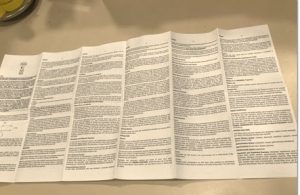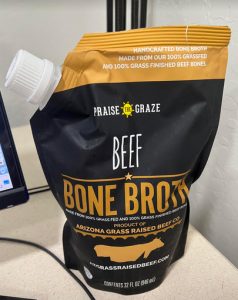Recently, a friend revealed that she took eight different meds a day. She complained she constantly felt "awful" and wanted me to tell her about her medications. I told her what the pills were commonly used for and she was shocked. One was for diarrhea that she regularly took from "day one" but didn't need anymore. How she could get the prescription refilled was a mystery to me.
She was also taking conflicting drugs for diabetes, prescribed by different doctors. No wonder she felt "awful." The next time she sees her current primary doctor, she should take all eight containers and show them to the doctor and ask if she REALLY needs to take all of them every day.
I've been a pharmacist for over 60 years. Today's pharmacy is a far cry from what it used to be and should be before Big Pharma took over the profession. In pharmacy school, we learned to become practitioners of "the noble and ancient art of the apothecary." Only a relatively few pharmacists know enough to practice that way anymore, and they often operate as specialty pharmacies that do not usually accept insurance. For example, in Arizona, one such pharmacy is Potter's House Apothecary . They operate with "high tech" skills yet provide "old-time" help, support, and delivery service. I love them.
We all know (or should know) there are potentially dangerous side effects to today's "miracle" pharmaceuticals rattled off during creative T.V. ads. But, does anyone listen to them? Unfortunately, those spoken side effects are not the only side effects. Worse, side effects mentioned on T.V. are glossed over by accompanying warm, enticing visuals of puppies, babies, mom and dad dancing, hugging, or looking lovingly at each other. Nothing in the video has anything to do with the drug or its side effects.

Package Insert II
Read the literature about your medication. (ask your pharmacy for the "package insert" that comes with every medication) It's scary. According to the U.S. Food and Drug Administration (FDA ), Big Pharma medications cause about 100,000 deaths per year, making prescription drugs the fourth-leading cause of death in the country. Giving pharmaceutical drugs to much of the adult population is called "health care." I call it big business.
We hear constant reminders about the value of a healthy diet. Medical schools provide little or no nutrition education and often scoff at those taking dietary food supplements. Yet, vitamin supplements are often made by pharmaceutical companies. For example, Nature Made vitamin supplements, regularly advertised on T.V., are owned by Otsuka Pharmaceuticals. Pfizer, Unilever, Novartis, GlaxoSmithKline, and other big pharmaceutical firms make or sell supplements. Read The Link Between Big Pharma and the Supplement Industry.
We learn from the Harvard T.H Chan School of Public Health, "Nutrition Education Lacking At Most Medical schools. We live on a fast-food, out-of-a-box, sugar-overloaded, nutritionally bankrupt diet most of our life. Then in our later years, we wonder why we suffer from diabetes, high blood pressure, heart failure, clogged arteries, arthritis, etc. But not to worry! Big Pharma has a perfect pill to help pay for a lifetime of dietary sins. (Don't feel bad. Most of us are guilty to one degree or another.)
The good news is that regardless of how "awful" you feel, even while taking prescribed meds, there is a lot you can do to improve your nutrition and help you feel better. For example, here is one of my "secret weapons" — bone broth. I buy mine from AzGrassRaisedBeef.com. One cup has 19 grams of protein and only 90 calories; it's delicious and adds body to soups and stews.

Bone broth
Usually, when you open a can of tomato or other condensed soup, you add an equal amount of water. Instead of adding water, I add bone broth, making the soup taste better and far more nutritious. If you have used bone broth in the past, this broth is gelatinous (until heated) instead of watery like the product in most grocery stores.
I feel better when I eat less often and focus on the quality of what I do eat. For example, if I'm experiencing brain fog, it clears up after consuming a huge bag of Costco frozen blueberries within a week. (No kidding!) Read Experiencing Memory Loss? Try Blueberries
Give better nutrition a try and see if you not only feel better but look better. I keep harping on this but remember, your health is your responsibility — not your doctor's. Think, investigate, ask questions, and act in your best interests. Your doctor doesn't have sleepless nights worrying about your health. His love and concern for you last for the five minutes he can allot to you in his office. He has a waiting room filled with patients to whom he has only five minutes to see and express his concern and write a prescription for the next, best Big Pharma super pill.
Put Old on Hold Journal
www.putoldonholdjournal.com
Barbara Morris, Editor/Publisher
contactnewsdesk@gmail.com